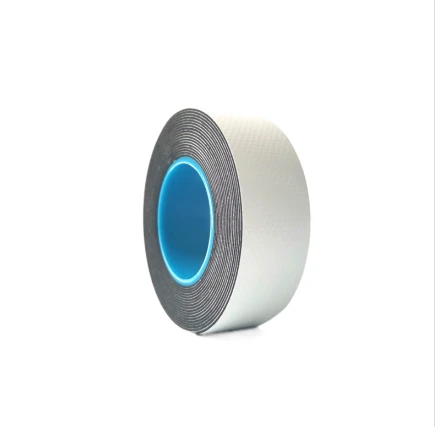Understanding Fireproof Insulation Tape A Essential Tool for Safety and Efficiency
In today's world, safety and efficiency are paramount considerations in both residential and industrial settings. One of the valuable materials that have risen in importance in the realm of insulation and fire safety is fireproof insulation tape. This specialized tape offers numerous benefits and applications, making it an indispensable tool for many contractors, builders, and DIY enthusiasts.
What is Fireproof Insulation Tape?
Fireproof insulation tape is a type of adhesive tape designed to resist high temperatures and prevent the spread of flames. Made from materials such as fiberglass, silicone, and other heat-resistant compounds, this tape is engineered to withstand extreme conditions. Its primary function is to insulate electrical wires, pipelines, and other components, protecting them from heat damage and minimizing the risk of fire.
Why Use Fireproof Insulation Tape?
The importance of fireproof insulation tape lies in its ability to enhance safety. In environments where flammable materials and electrical systems are present, the risk of fire is a significant concern. Traditional insulation materials may not offer adequate protection, especially in high-temperature areas. Fireproof insulation tape, with its heat-resistant properties, provides an additional layer of safety, helping to prevent short circuits and potential fire hazards.
Moreover, fireproof insulation tape can contribute to energy efficiency. By effectively insulating pipes and other fixtures, it helps maintain temperature, reducing energy loss. This efficiency can lead to lower energy bills and a more sustainable approach to energy management. It can be particularly beneficial in HVAC applications, where maintaining precise temperatures is crucial for optimal performance.
fireproof insulation tape

Applications of Fireproof Insulation Tape
Fireproof insulation tape is versatile and finds applications across various fields. One of the primary uses is in the electrical industry, where it is applied to wires and cables to prevent overheating and reduce the risk of electrical fires. In industrial settings, it is used on boilers, pipes, and ducts to insulate and protect against high temperatures.
In construction, fireproof insulation tape can be used to seal joints and seams in building materials, creating airtight barriers that improve energy efficiency. Additionally, it is beneficial in automotive applications, where it can be used to wrap wiring harnesses and protect sensitive components from heat damage.
How to Choose the Right Fireproof Insulation Tape
When selecting fireproof insulation tape, consider factors such as the temperature rating, adhesive strength, and material composition. Different applications may require varying levels of heat resistance, so choosing a tape that meets the specific needs of your project is essential. Additionally, evaluating the tape's adhesive properties is crucial, as a strong bond will ensure long-lasting performance.
Conclusion
Fireproof insulation tape is more than just a product; it is a critical element in safeguarding electrical systems, ensuring energy efficiency, and enhancing safety standards. Whether you are a contractor, a builder, or a homeowner, understanding the benefits and applications of this tape can help you make informed decisions in your projects. By incorporating fireproof insulation tape into your safety protocols, you not only comply with regulatory standards but also protect lives and property from the devastating effects of fire. In an era where safety cannot be compromised, investing in high-quality fireproof insulation tape is a proactive step toward a safer and more efficient environment.
-
XIANGFAN Rubber Tape-Ultimate Solutions for All Your Insulation NeedsNewsJun.24,2025
-
XIANGFAN Rubber Tape-Protection for Industrial and Residential ApplicationsNewsJun.24,2025
-
XIANGFAN Rubber Tape: Superior Safety and Sealing for Demanding EnvironmentsNewsJun.24,2025
-
XIANGFAN Rubber Tape: Reliable Solutions for Every Electrical ChallengeNewsJun.24,2025
-
XIANGFAN Electrical & Industrial Tape: Powering Reliability Across IndustriesNewsJun.24,2025
-
XIANGFAN Electrical & Industrial Tape: Excellence in Every ApplicationNewsJun.24,2025
